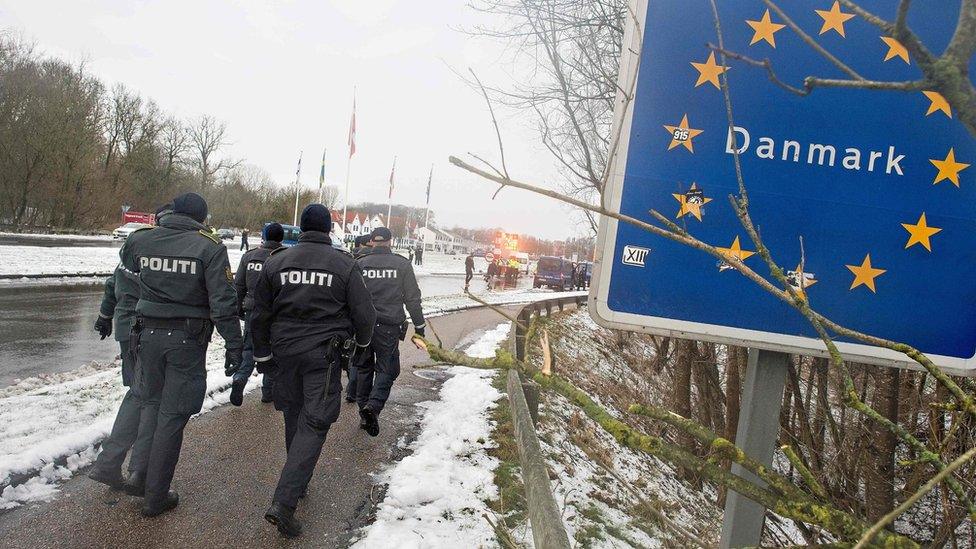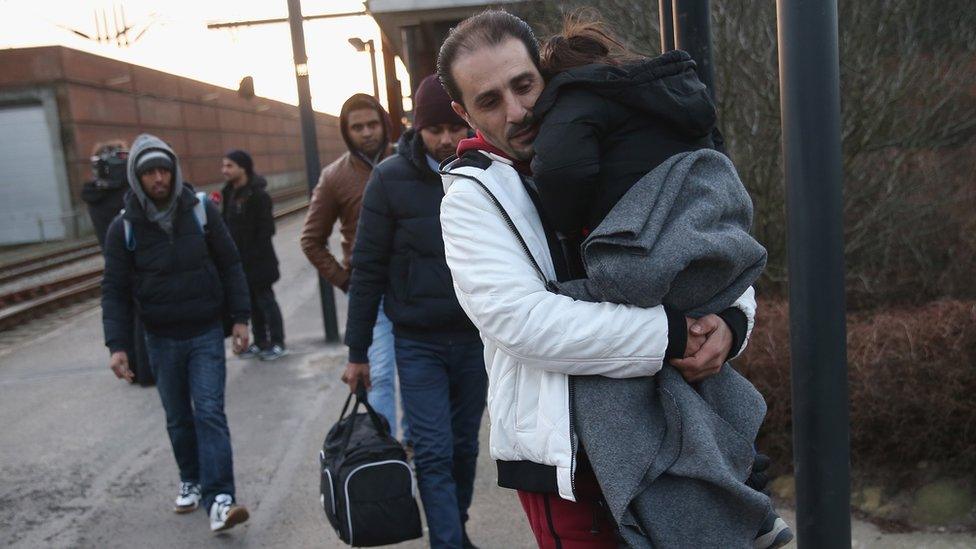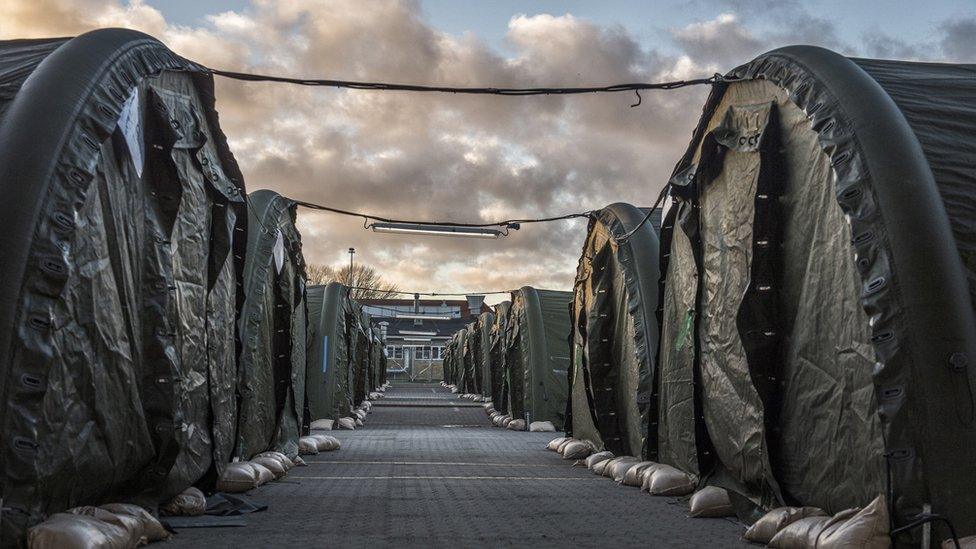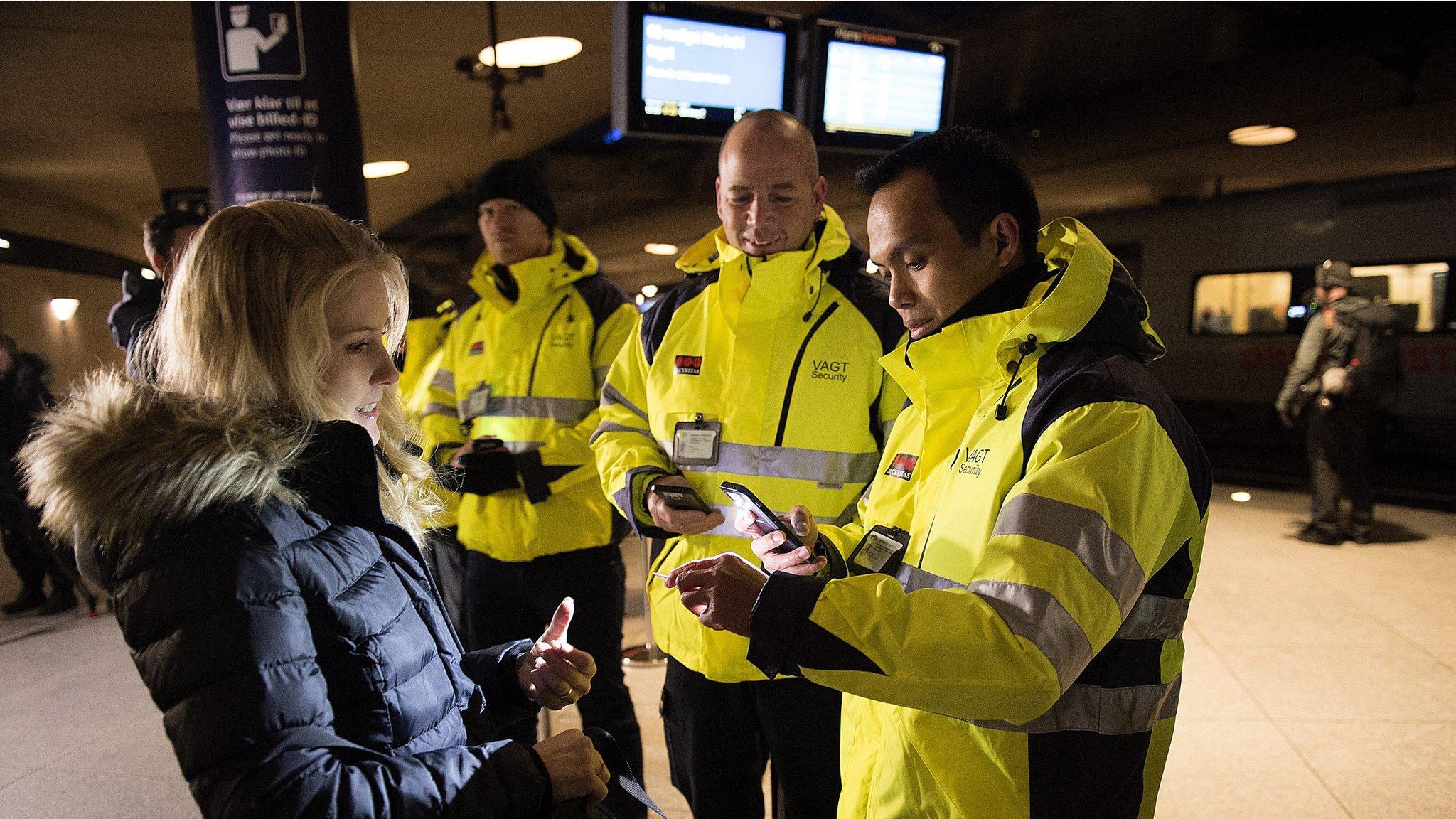Migrant crisis: Denmark MPs consider seizing valuables
- Published

Plans to seize the assets of asylum seekers are among controversial new measures on immigration being debated by MPs in Denmark.
The proposals have been condemned by the UN refugee agency and human rights groups. They say they go against international rules on refugees.
Prime Minister Lars Lokke Rasmussen has called the plan the "most misunderstood bill in Denmark's history".
The bill is expected to be voted on later in the month.
The government on Tuesday secured a parliamentary majority to alter the proposed legislation to allow the Danish authorities to seize migrants' cash and other individual items worth more than 10,000 kroner (£1,000; €1,340, $1,450).
Wedding rings and other items of sentimental value will not be included.
The move has been likened by some commentators to the treatment of Jews by Nazi Germany during the Holocaust.
Separately on Wednesday, the government announced it would extend temporary controls at its border with Germany for a further 20 days.
The controls were brought in on 4 January to prevent an influx of migrants after neighbouring Sweden imposed temporary controls on its borders.
Denmark said on Wednesday that 31,000 border checks had taken place on its border with Germany in the past 10 days and 200 people had been refused entry.

Europe's frosty welcome - by Jonny Dymond, BBC News

Barbed wire has been erected on several borders to slow the influx of migrants, including in Macedonia
"Refugees are welcome here," chanted crowds of Germans gathered at Munich railway station last September.
A few months on and the mood in Germany and much of the rest of Europe is very different.
Concerns over integration, the economic burden and security have risen sharply. In many countries, barbed wire has replaced open borders. And, after the Paris attacks, the Poles refused to take any migrants.
The New Year's Eve sex attacks in Cologne by men of a mainly migrant background has led to harsh questions about Western values and integration.
Sweden, traditionally welcoming to refugees, has introduced border checks, and Denmark has followed suit as it tries to dissuade migrants from coming. Europe is a much less hospitable place for migrants than it seemed last summer.

'Symbolic' measures
The ruling centre-right Venstre party - backed by its right-wing allies, the anti-immigration Danish People's Party, the Liberal Alliance and the Conservative People's Party - has promised to get tough on immigration since its election in June.
Integration Minister Inger Stojberg said the measures simply put migrants on an equal footing with jobless Danes, who must sell assets above a certain level to claim benefits.
She said the assets would help pay for housing, healthcare and some education.

Some 20,000 migrants arrived in Denmark last year
Another heavily criticised part of the bill would delay the reunification of families for up to three years, up from the current one year.
The UN High Commission for Refugees, in its report on the proposed legislation, external, said the swift reunification of families was enshrined in a number of international conventions it called on Denmark to observe.
The bill also includes measures making it harder to obtain permanent residency and shortening temporary resident permits.
Responding to the plan to seize valuables, UNHCR spokesman William Spindler told the BBC: "Refugees have lost their homes and almost everything they possess.
"It beggars belief that somebody would want to strip them away from the little they have managed to salvage from their lives.
"Refugees need and deserve compassion, understanding, respect and solidarity."
Sofie Carsten Nielsen, an MP with the opposition Social Liberal party, said the bill was designed to "send a signal to refugees... that here in Denmark it's very difficult to come in...
"You will be investigated and you will be ransacked and they will search your bags for every sort of belongings that you have."
Denmark says 21,000 people applied for asylum in 2015 and it expects a similar number this year.
Neighbouring Sweden took in 163,000 and Germany has had more than 1.1 million asylum requests.
- Published18 December 2015

- Published4 January 2016
